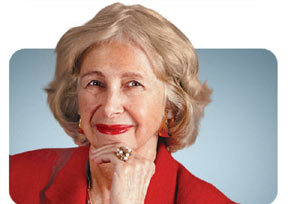WASHINGTON— When the first Syrian refugees and many from other "nations" began showing up on Europe's southern shores last summer, usually wet, bedraggled and only half-alive, amazement soon turned to pity, then pity to action and resentment to mercy.
Those first pictures showed German Chancellor Angela Merkel, called "Mutti" or "Mama" by the refugees, welcoming the strangers and, in many instances, average folks pouring out sympathy and help to the wanderers.
Maybe the Europeans had an idea in the back of their minds that there would be some natural end to it all -- a certain number of miserable people (and, yes, surely some con men) and then the migration would stop, probably in time for Oktoberfest! Only it didn't.
Instead, this October, more than 218,000 migrants crossed the Mediterranean to reach Europe, more than the total number in all of last year. A U.N. spokesman said it was "beyond anything that could have been expected even a few months ago." Some informed observers predicted there could easily be 30 to 35 million waiting yet to come!
Interestingly enough, the conversation about them has changed, too. Mercy has lost out. "Culture" and "cultural identity" are definitely in, as are discussions of "civilizational threats" and "the destruction of our genetic heritage." In short, the Europeans, and especially the Germans, are bewildered and scared, and they say increasingly that things are out of control.
Perhaps Christopher Caldwell, a brilliant American analyst on Islam in Europe, said it best in a recent piece, "The Rising Migrant Tide: What Merkel Wrought," in The Weekly Standard: "This movement of millions of Middle Easterners into Central Europe is going to change the continent at its core."
Then he shared an evocative memory of covering the train station in Vienna one day during this moment of time: "Down the platform the migrants come, 90 percent of them men in their early 20s, in dark clothing -- dark jeans, dark down parkas, brown or black shoes. They look like people from the Muslim world, so long as you remember that a big part of the Muslim world is now in Europe ... the residents of Paris' banlieues, maybe."
Now it is November of 2015, and the stories from the great migration are changing. In German camps for the refugees, Christians are kept separate by the local police because the Muslims intimidate them so much. In some camps, there have already been "honor killings" of girls who dare to smile at men. The Wall Street Journal details male Muslims refusing food from female aid workers. Fights begin easily between Pakistani Muslims and Syrian ones.
One French mayor, Robert Menard of Beziers, which has a population of 70,000 people, feels his city is being overrun with unknown men and a few women who neither share French societal values nor want to. He said it very simply in The New York Times: "People feel like they are being replaced. ... I don't want this city to be majority-Muslim, at all. There is a majority of the Muslim population that is incapable of living within the norms of this country."
And Chancellor Merkel's guilt, or non-guilt, for this increasingly dangerous threat to European principles and unity -- which began when she sent out a call saying refugees were welcome in Germany -- is now taking palpable political form. The Bavaria-based Christian Social Union, which has long been allied with the chancellor's Christian Democratic Union, has given the chancellor warning that this uncontrolled migration is as much a "cultural threat" as a physical one.
What it most often comes down to is at heart a difference in how the right and the left see and foresee the refugees. The right tends to see them as how they are, honor killings and hatred of Christians and Jews, and believes they will stay that way. The left tends to see them as people who will see "the light" of European culture now that they are there.
This latter virtually never happens, but so what? Indeed, not only do refugees with strong national, ethnic or religious backgrounds continue to live and to expound those backgrounds, but when they come in groups, as these people do, they soon organize along their old principles, often even against the country they have fled to. France is already having this problem with its Muslims.
One searches, indeed, across recent history to find examples where even smaller refugee flows have turned out well when the cultures are so different. Yes, you CAN insist upon different peoples living together, but you will find that your innocent "good" intentions will only be "rewarded" by people who inevitably carry with them the violence they fled.
One can only hope that America will learn from Europe's sobering experience.
Previously:
• 10/01/15: The 'I' word
• 09/09/15: Generosity has its downside
• 07/15/15: Thank you, Donald Trump
• 07/01/15: Immigrant crisis tests Europe's Union
• 05/27/15: Why Iraq will continue to fall --- no matter what the West does
• 05/06/15: For Europe, generosity to turn into nightmare?
• 04/29/15: Both sides must work to end our season of killing
• 04/01/15: Our next president should be a homebody
• 03/04/15: Japan's sun poised to rise on world stage
• 01/21/15: Rumors of a new Cold War have real roots in history
• 01/21/15: It's time to be practical about multiculturalism
• 01/07/15: Tension mounts against Muslim immigration in the West
Comment by clicking here.
Georgie Anne Geyer has been a foreign correspondent and commentator on international affairs for more than 40 years.



 Contact The Editor
Contact The Editor
 Articles By This Author
Articles By This Author